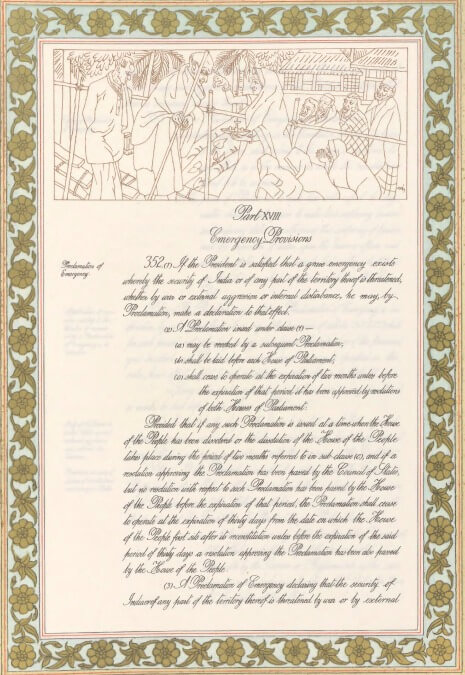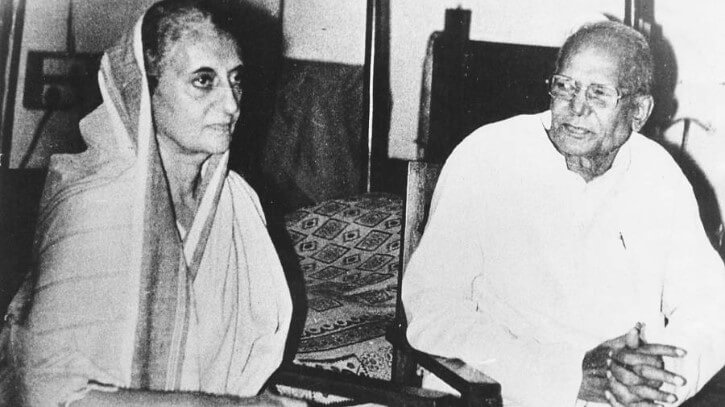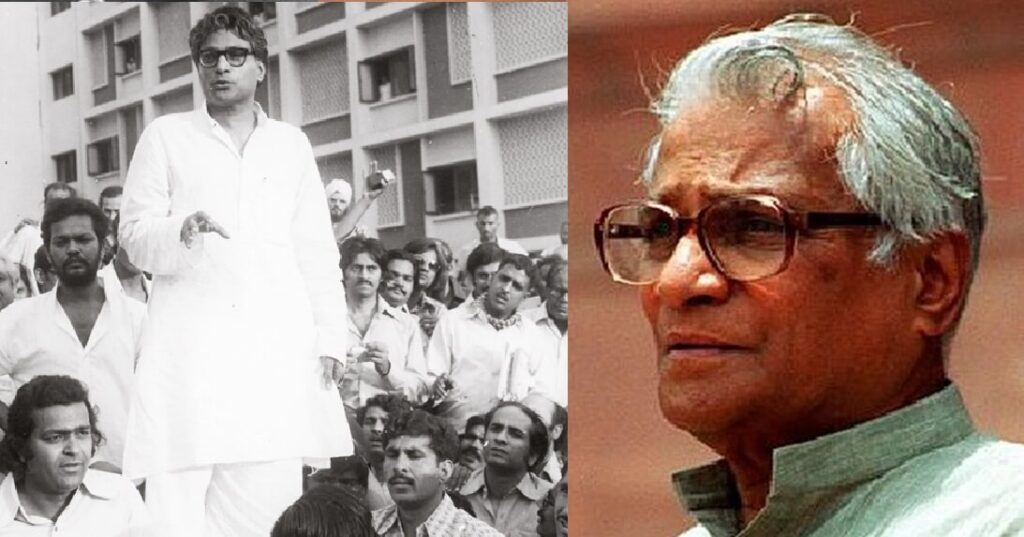
Caveat. I am an admirer of Indira Gandhi for no other reason than that she was the only macho Prime Minister of India, yet very feminine and motherly.
Part-XVIII Constitution of India from articles 352 to 360 provides for Emergency Powers to deal with extraordinary situations to protect and preserve the unity and integrity of India. The powers given by the Constitution and laws are meant to be exercised when situation demands. Otherwise, there was no use of them.

On 25th June 1975, Indira Gandhi government proclaimed National Emergency, invoking the powers conferred by article 352 of the Constitution, which was perfectly constitutional.
However, there is another aspect to exercise of constitutional and legal power. That is, it is one thing to have power but a totally different to exercise it. Which means, the exercise of such power ought to be for legitimate purposes. In other words, legality and propriety of an action are two sides of the same constitutional coin.
Let us examine the propriety of proclamation of Emergency under article 352 of Constitution.

Critical analysis of past events is an important exercise in our endeavour to understand history whose truth is often buried deep under the debris of propaganda and lies. National emergency imposed by Indira Gandhi is one such important national event which must be analysed and understood in its proper historical context by segregating grain from chaff and truth from myth.
It is well known that Indira Gandhi played a stellar role in dismembering Pakistan and creation of Bangladesh in 1971 much against the wishes of USA. Consequently, both Pakistan and USA became extremely vengeful against India in general and Indira Gandhi in particular.
Also Read: Creation of Bangladesh, turned out to be Indira Gandhi’s biggest mistake
In cahoots with each other while the ISI of Pakistan fine-tuned its strategic doctrine “Bleed India by 1000 Cuts” the CIA of USA activated its political sleeper cells in India to take revenge.
Between 1971 and 1975, they fomented all sorts of problems causing internal disturbance, political instability, student unrest, labour strikes, and whatnot to destabilise the country in every which way.
The newfound judicial activism in circumscribing Parliament’s power to amend the Constitution and other issues was taken full advantage of by all these elements to delegitimize political governments both in States and at the Centre.

Jayaprakash Narayan who was educated in USA, started a movement called JP Movement or Sampoorna Kranti by mobilising students, labour, etc. Non-Congress parties such as Bharatiya Lok Dal, Jan Sangh etc supported the JP Movement.
In several States students went on agitation for years for one or other or no reason. The student-led Navnirman Andolan of 1974 in Gujarat led to resignation of resignation of Congress Chief Minister Chimanbhai Patel and imposition of President’s rule.

In 1974 George Fernandes as President of All India Railwaymen’s Federation, the largest labour union in Indian Railways led the all India railway strike which crippled the economy and movement of goods and people. Significantly, Jayaprakash Narayan was also the President of the same Federation between 1947 and 1953.
In 1973 the Provincial Armed Constabulary of the Uttar Pradesh Police revolted and Army had to be called in to quell it.
On 12th June 1975 Justice Jagmohanlal Sinha of Allahabad HC by an order on an election petition filed by Raj Narain whom Indira Gandhi defeated in 1971 election in Raebareli, not only invalidated Indira Gandhi’s win but also barred her from holding elected office for six years. Gandhi appealed the verdict to Supreme Court, which granted a conditional stay on 24 June 1975. Later, on 7 November 1976 the SC quashed the judgement of Allahabad HC.
Immediately after Allahabad HC verdict, Jayaprakash Narayan called upon the military and police to disaffect and disregard orders of the government. This was the last nail.
Any government worth its salt which has taken constitutional oath to protect and preserve the country cannot tolerate possible mutiny and disaffection of armed forces, destabilisation, internal disturbance and public disorder of such magnitude. It is duty bound to use all the constitutional and legal means to restore order. For, unity and integrity of India is of paramount importance.

Indira Gandhi government did exactly that by invoking the emergency powers given by article 352 of the Constitution to bring back normalcy by promulgating Emergency.
The fact that after a brief period of 21 months she revoked the Emergency on her own on 21st March 1977, amply demonstrates her patriotic and democratic intentions. If she had wanted to remain in power for her lifelong all that she could have done was continue the Emergency or subvert the Constitution. There was no other reason for her except her democratic bent of mind and patriotism to rescind Emergency on her own and call for general elections in 1977.
As regards, the alleged excesses by the police and government during Emergency, they are not any peculiar to Emergency period alone. Police excesses and governmental highhandedness have been a norm before, during and after the Emergency irrespective of the political colour of the government. As such, much of the literature and outrage about the so called excesses during Emergency are in the genre of false atrocity propaganda and motivated tomfoolery. The old adage, “give the dog a bad name and hang it” sums up their shenanigans.
Finally, Emergency proclaimed by Indira Gandhi was a constitutional response to deal with an extraordinary situation fomented by CIA of USA and ISI of Pakistan and prevent their wrecking of India.

